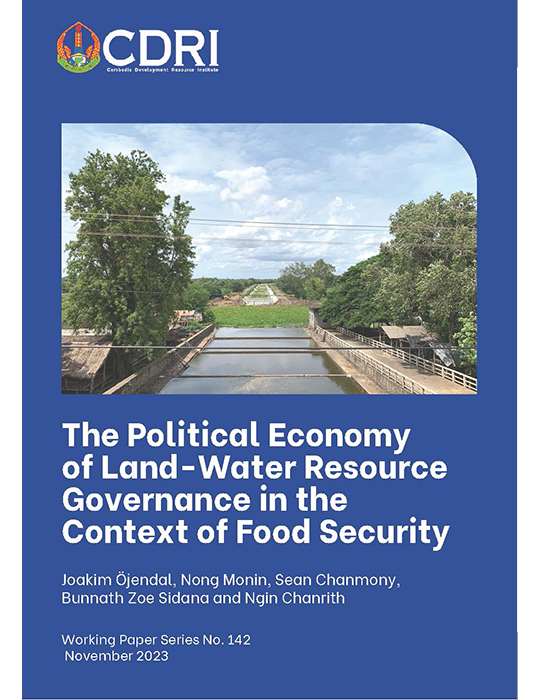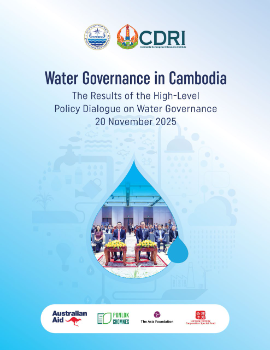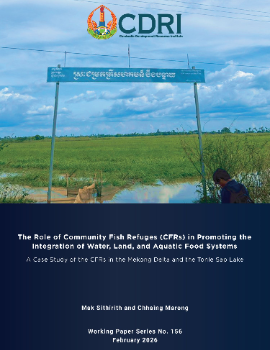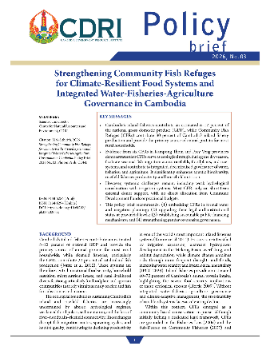
The Political Economy of Land-Water Resource Governance in the Context of Food Security in Cambodia
Abstract/Summary
This study explores the political economy of land and water resource governance in Cambodia’s Tonle Sap floodplains, a region vital to national food security and rural livelihoods. Through desk research and stakeholder interviews, the report examines how governance structures, institutional frameworks, and actor dynamics shape resource management outcomes. Despite progressive policies promoting integrated water resource management (IWRM), implementation remains fragmented due to sectoral silos, weak inter-ministerial coordination, and limited decentralised authority. Community-based organisations such as Farmer Water User Communities (FWUCs) and Community Fisheries (CFis) face challenges including elite capture, inadequate funding, and conflicting mandates. Commercial interests and infrastructural developments further strain resource integrity. The study highlights the need for cross-sectoral collaboration, strengthened local governance, and inclusive planning to address competing demands and climate risks. Key recommendations include establishing cross-ministerial coordination mechanisms, enhancing policy implementation monitoring, supporting district-level integration of water, agriculture, and fisheries, and empowering farmer cooperatives for holistic resource management. The findings underscore the urgency of reforming governance systems to ensure equitable access, sustainable resource use, and improved food security for Cambodia’s vulnerable populations.



